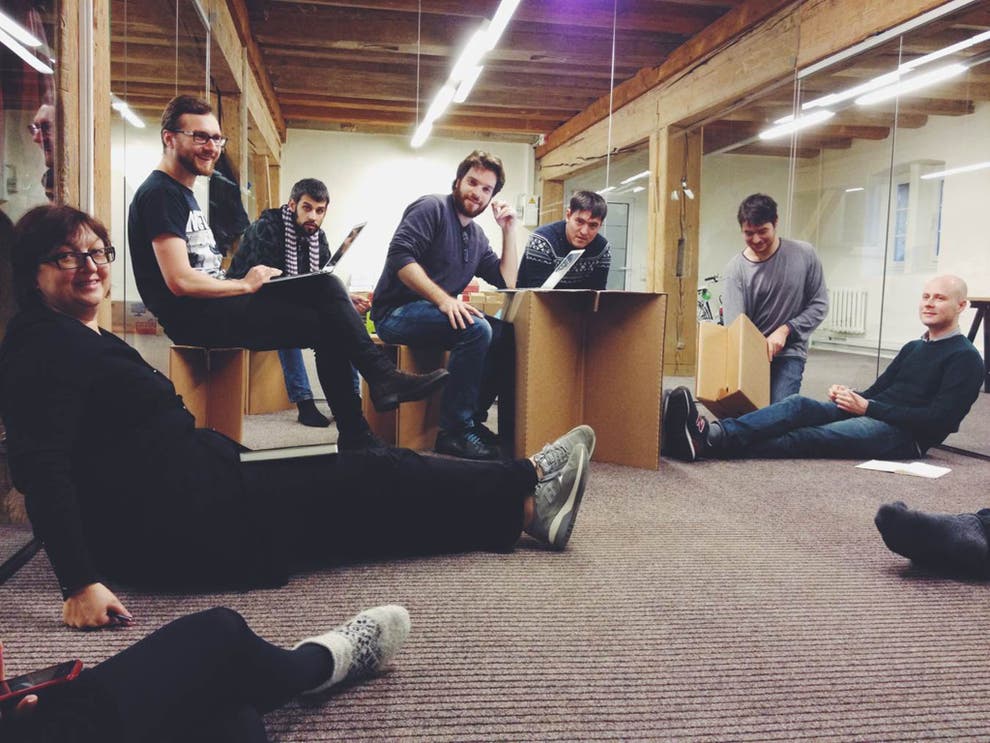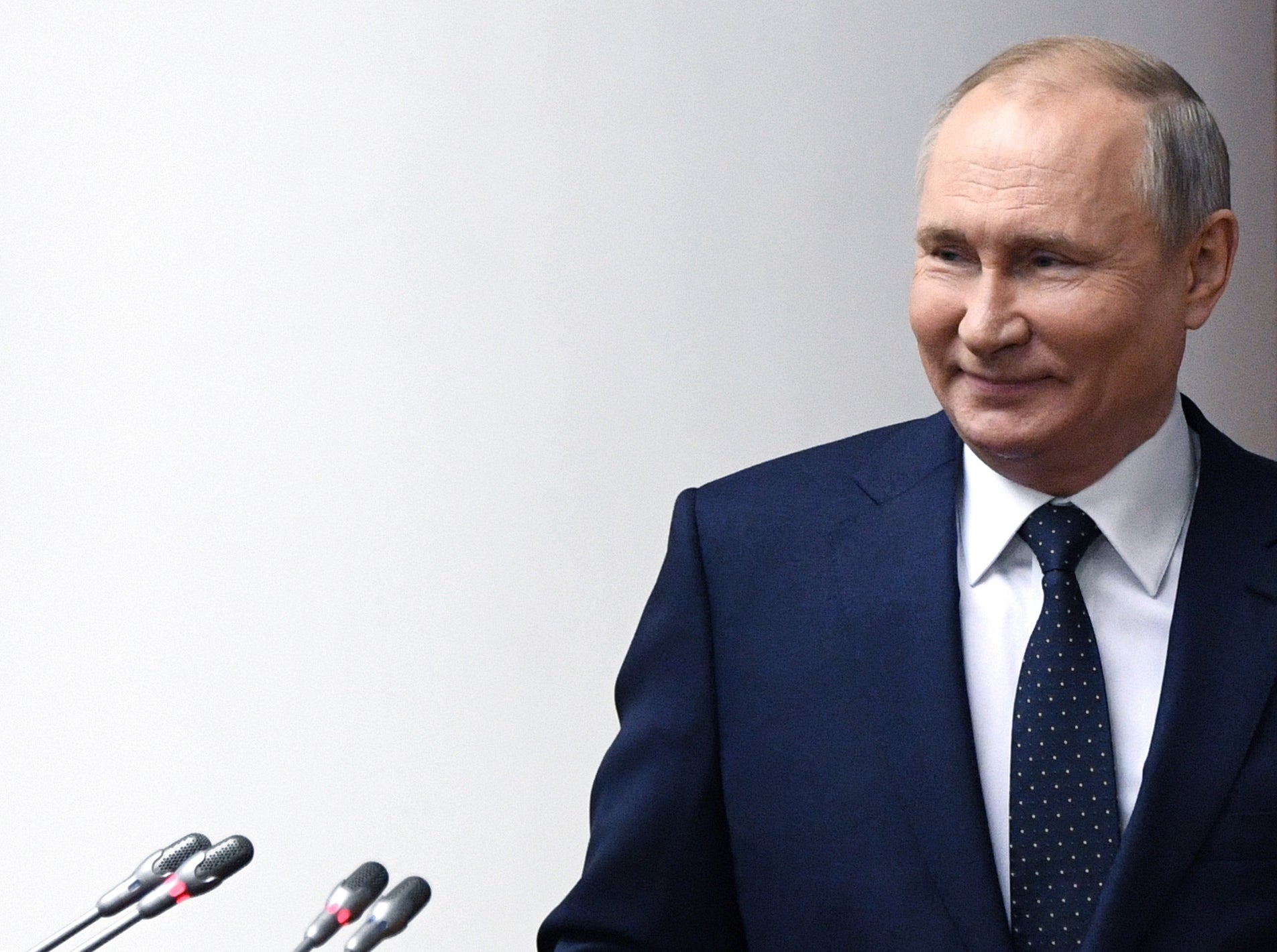Kremlin building ‘Berlin Wall’ around truth, warns besieged founder of Russia media site
Russia has slipped into a ‘vicious military dictatorship’ says Meduza’s Galina Timchenko, days after Kremlin labelled her market-leading media a ‘foreign agent’

Galina Timchenko, the founder of Russia’s most popular independent news resource Meduza, is no stranger to bare knuckle boxing with the Kremlin.
Her sacking from her previous publication Lenta — apparently on the orders of the presidential administration — served as the impetus for her to found her own media whippersnapper that ended up being just as much of a thorn in the side of Russia’s masters.
But now, in the wake of Meduza’s controversial ‘foreign agent’ designation, issued on Friday, Timchenko appears to be conceding defeat.
“I think the game is up for independent media in Russia,” she says. “For the first time, we’re seeing editors in chief being arrested. That hasn’t happened before. It’s the start of a total ban on the profession.”
The move to include Meduza on the list, which previously only included publications financed by foreign governments, was widely interpreted as the start of a final assault by the Kremlin on critical internal voices.
With an average monthly audience of over 10 million unique visitors, Meduza stood at the front of an increasingly exposed last line of defence against totalitarianism.
That — and the publication’s deliberate incorporation outside Russia — made it low-hanging fruit for Russia’s increasingly assertive leadership.
“We blew up the dance floor first, so it’s not surprising we’re on the chopping block first too,” Timchenko says.
What the new designation means in material terms is that Meduza is now obliged to preface all social media and article posts with a long, clunky, capitalised 24 word warning. Failure to do would open the publication to crippling fines.
The measure appears designed to disconnect the publication from potential new audiences — as well as exhausting its existing ones. It also puts Meduza’s journalists and potential sources at risk of being labelled spies.
The ‘foreign agent’ label is also designed to hit Meduza where it hurts most: cashflows.
Last year, the six-year-old publication was eighty percent reliant on its advertising revenues. The Kremlin’s new law demands even advertising content is prefaced by the same clunky warnings. Most corporate partners will run a mile.
“Those 24 words are the equivalent of a Nazi yellow star,” Timchenko says.
The veteran editor and media manager says the Meduza team was given no warning about the new designation. But it wasn’t an entirely unexpected development given the direction of travel elsewhere in the country.
Timchenko says the Kremlin has fully embraced the idea of “self-isolation” and is slowly building a “wall” around the truth.
“I keep imagining Berlin in the early ‘60s,” she says. “How people once walked to work through the same border crossing. How some noticed the guys laying down bricks. How some didn’t. But how all woke up one day with the realisation another life and their loved ones were now the other side of the wall.”

Russia’s new laws were the “bricks” of a new “Berlin Wall” inside Russia, she says.
The Kremlin’s new media clampdown appears to represent a more fundamental transformation of the regime in a year it grappled with an uprising in neighbouring Belarus and the fallout to its own actions with Alexei Navalny.
In Timchenko’s view, the country’s political system was now best described a “vicious militaristic democracy” and its rulers — “a gang of elderly men”,
“The leadership was born in the Soviet Union and the [gangster dominated] 1990s,” she said. “All are poorly educated, poorly read, and are preventing more reasonable opinions in the Kremlin from being heard.”
Unfortunately for Timchenko, that group of elderly men have now taken an unequal fight to Meduza. They are unlikely to stop there, with US social media giants and YouTube now in their sights.
There isn’t much to be optimistic about, the media veteran says. Of the seven possible survival scenarios that her team had sketched out, four had already been ruled out. It was unclear if any of the other three could work.
“Things are about to get very dark, very difficult,” she says.
“But just as Professor Dumbledore once told Harry Potter, life sometimes makes you choose between what is easy and what is right. We didn’t become journalists in Russia to take the easy route.”
Subscribe to Independent Premium to bookmark this article
Want to bookmark your favourite articles and stories to read or reference later? Start your Independent Premium subscription today.

Join our commenting forum
Join thought-provoking conversations, follow other Independent readers and see their replies
Comments